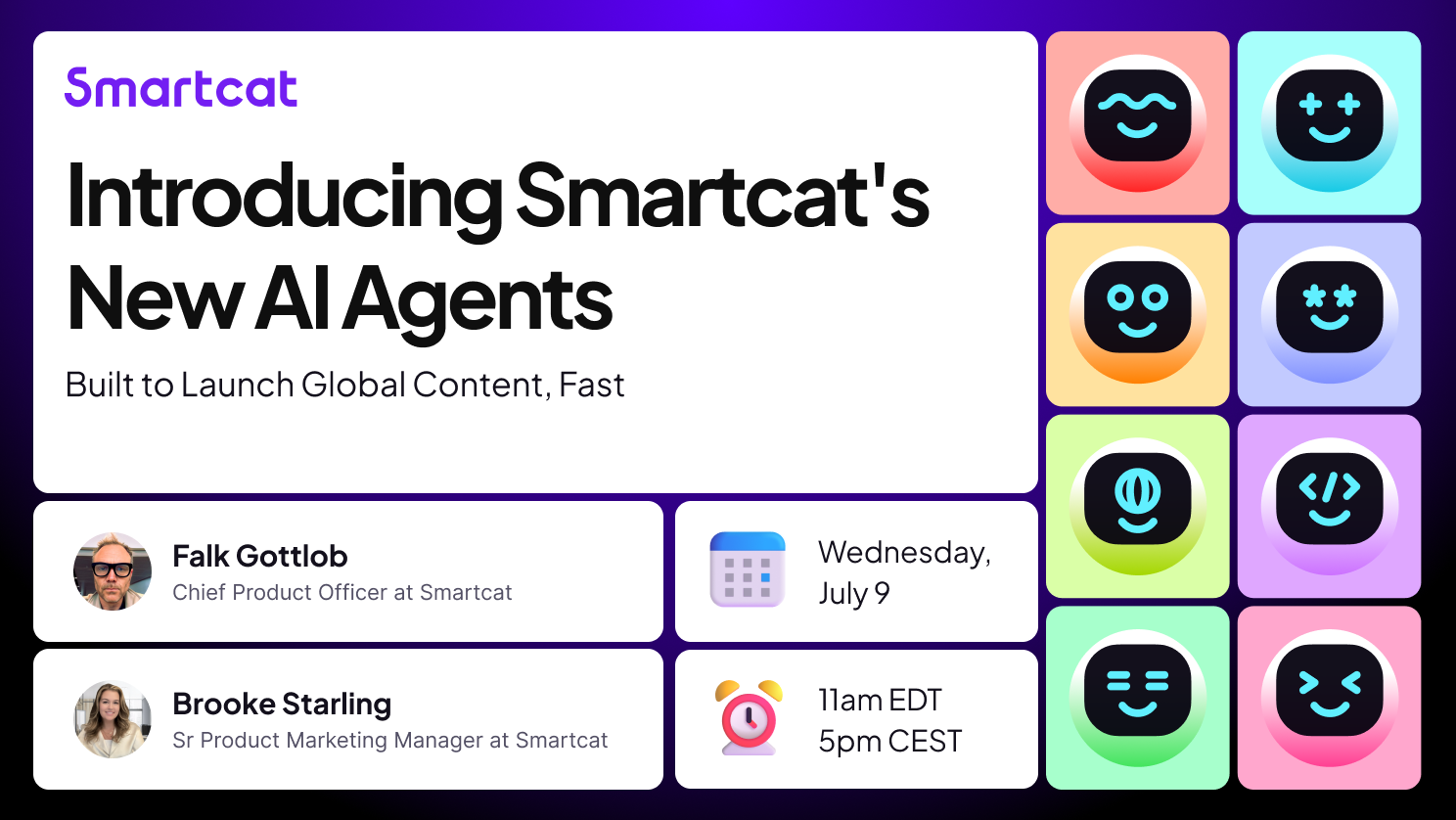Events
Smartcat Events
Explore the latest trends, topics and techniques in AI content creation and translation

Upcoming
Introducing Smartcat's New AI Agents: Built to Launch Global Content, Fast
Date
Type
Tags
Explore the latest trends, topics and techniques in AI content creation and translation
